25+ Sample Kindergarten Checklist
-
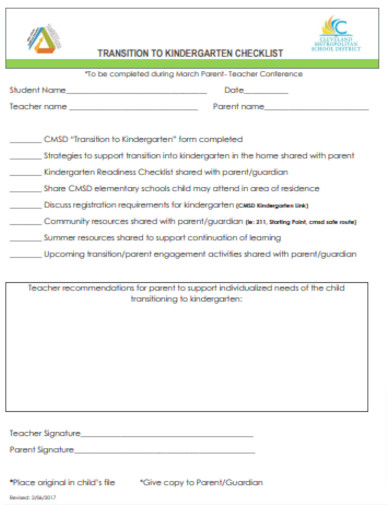
Preschool Kindergarten Checklist
download now -
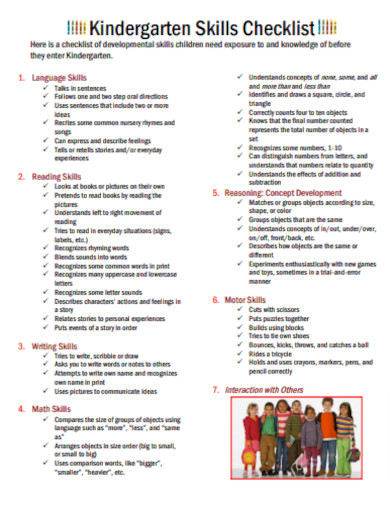
Kindergarten Skills Checklist
download now -
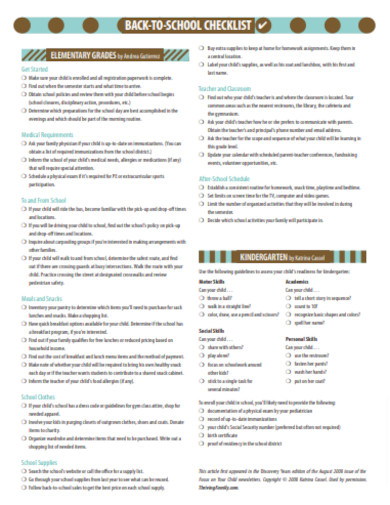
Back to School Kindergarten Checklist
download now -
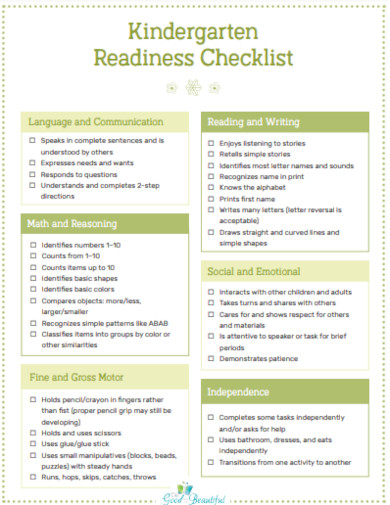
Early Childhood Assessment Kindergarten Checklist
download now -
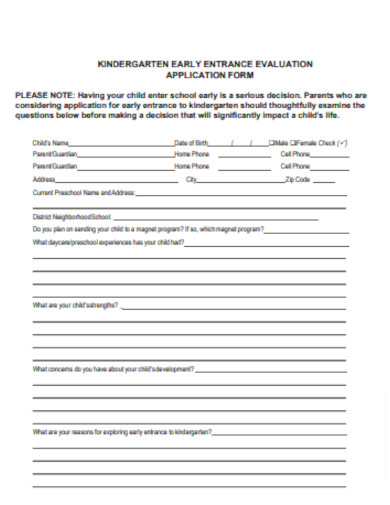
Evaluation Kindergarten Checklist
download now -
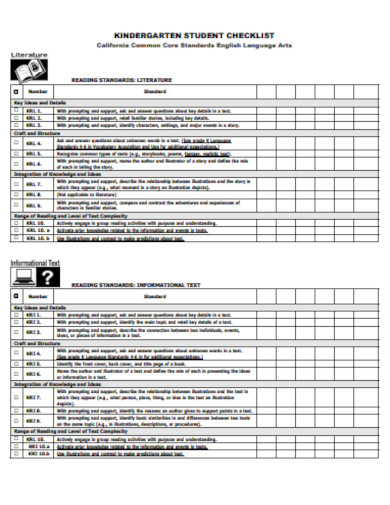
Standards Kindergarten Checklist
download now -
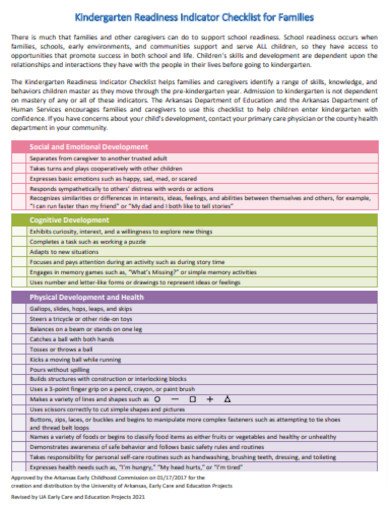
Kindergarten Indicator Checklist
download now -
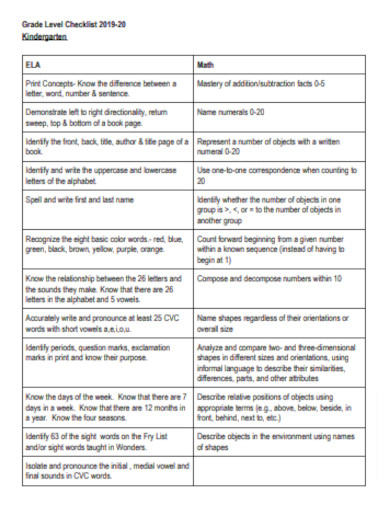
Kindergarten Grade Checklist
download now -
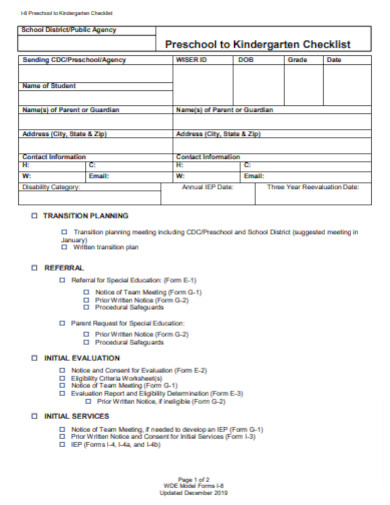
Worksheet Kindergarten Checklist
download now -
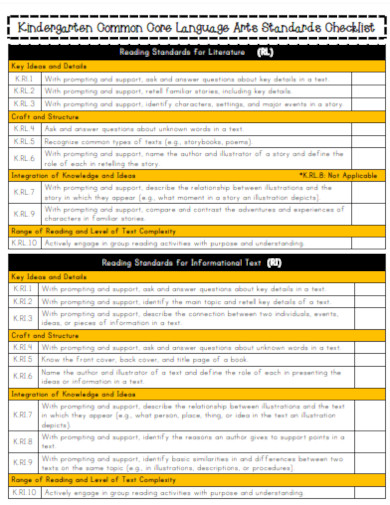
Kindergarten Common Core Checklist
download now -
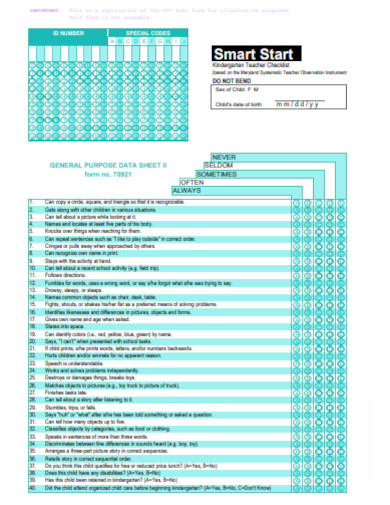
Kindergarten Teacher Checklist
download now -
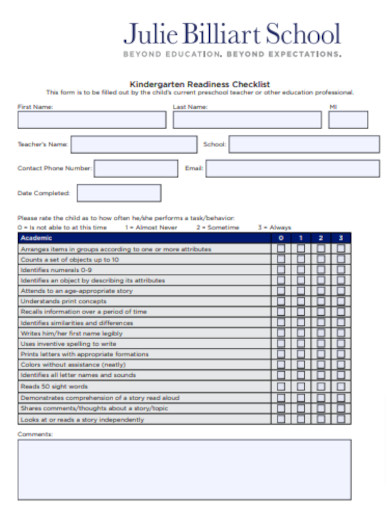
Simple Kindergarten Checklist
download now -
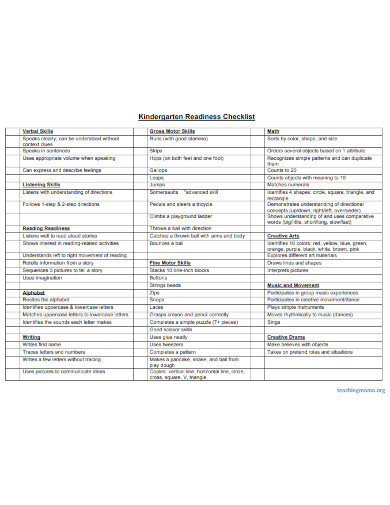
Kindergarten Checklist Outline
download now -
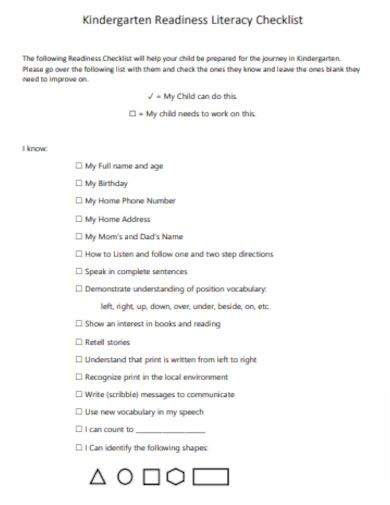
Literacy Kindergarten Checklist
download now -
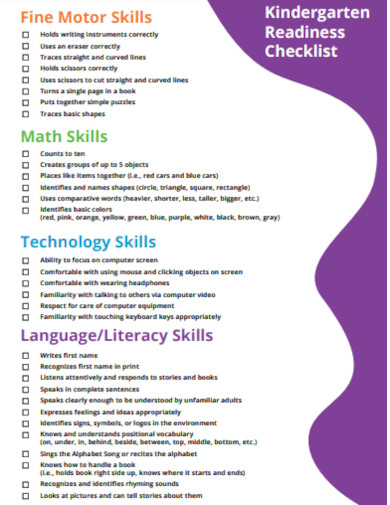
Kindergarten Fine Motor Checklist
download now -
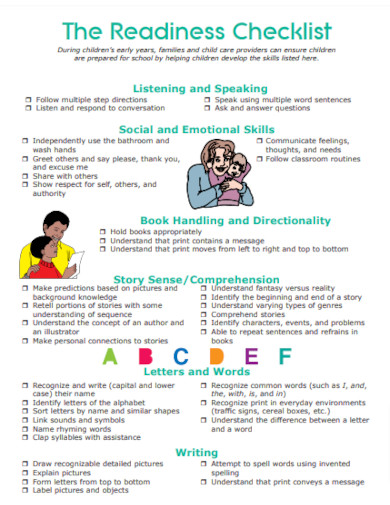
Sample Kindergarten Checklist
download now -
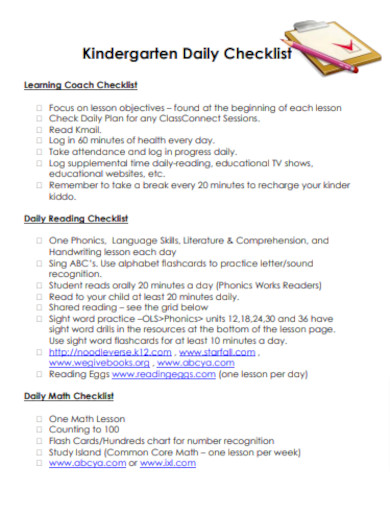
Daily Kindergarten Checklist
download now -
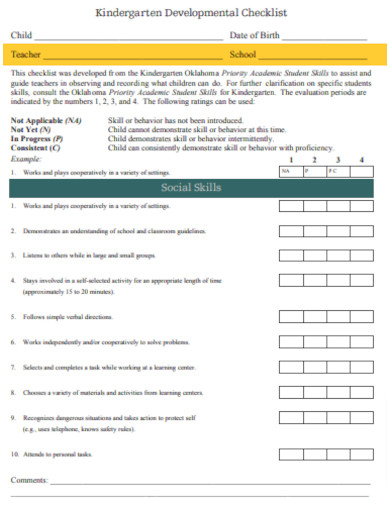
Classroom Kindergarten Checklist
download now -
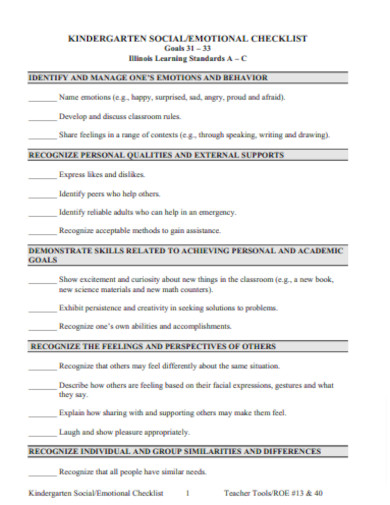
Social Emotional Kindergarten Checklist
download now -
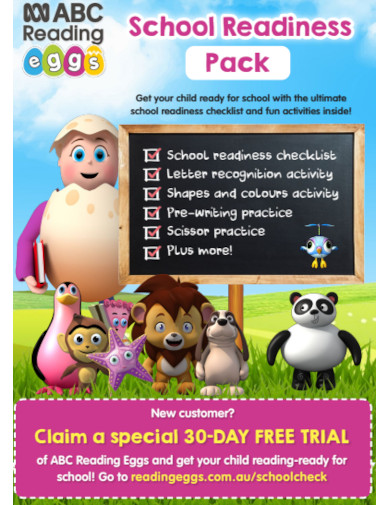
School Kindergarten Checklist
download now -
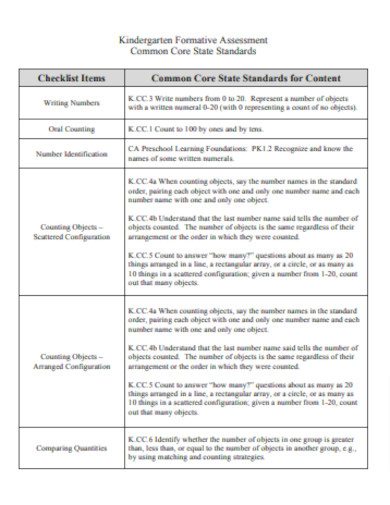
Kindergarten Assessment Checklist
download now -
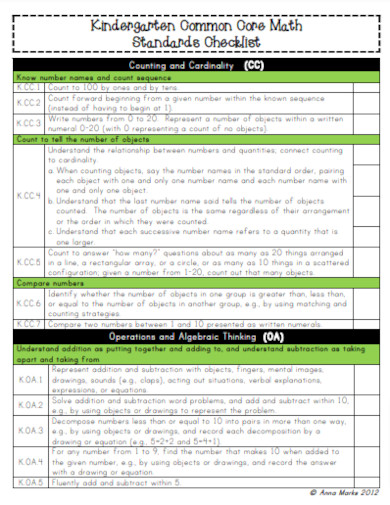
Kindergarten Math Checklist
download now -
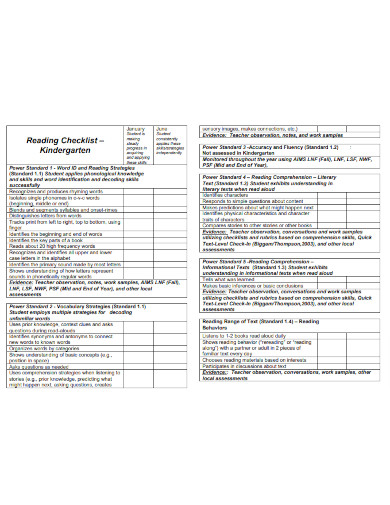
Kindergarten Reading Checklist
download now -
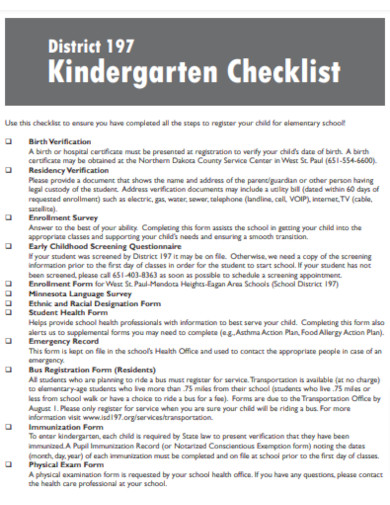
Printable Kindergarten Checklist
download now -
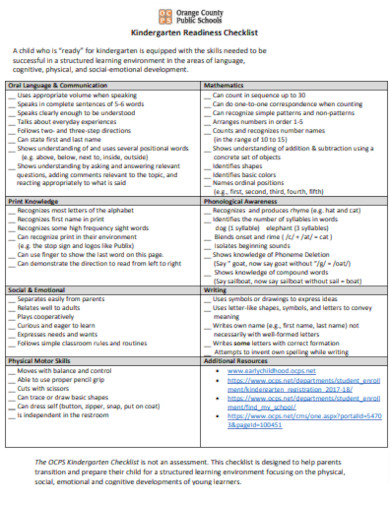
Kindergarten Readiness Checklist
download now -
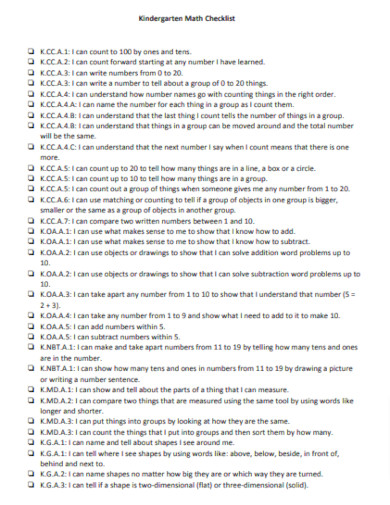
Kindergarten Checklist Layout
download now
FREE Kindergarten Checklist s to Download
25+ Sample Kindergarten Checklist
Definition
Understanding Developmental Milestones
Academic Preparedness
Social and Emotional Readiness
Health and Wellness
Essential Supplies
Safety Protocols
Routine Development
Communication Skills
Enhancing Curiosity and Creativity
FAQ’S
What if my child doesn’t meet most of the items on the checklist?
Are academic skills the primary focus of a kindergarten checklist?
Is emotional and social readiness as crucial as academic readiness?
Can the checklist be adapted for special needs children?
Why is a kindergarten checklist important?
Definition
A kindergarten checklist is a comprehensive guide that assists parents, guardians, and educators in ensuring children are adequately prepared for their first significant step into the world of formal education. It encompasses various domains, from academic readiness to emotional well-being. The transition to kindergarten is a milestone for both children and their caregivers. Ensuring a smooth start requires preparation. This comprehensive kindergarten checklist is designed to guide parents and caregivers through the essential steps.
Understanding Developmental Milestones
- Recognizing age-appropriate skills: Understanding what skills children typically have at this age, such as basic counting or recognizing letters.
- The spectrum of child readiness: Recognizing that every child is unique, and readiness can vary.
Academic Preparedness
- Pre-reading skills: Familiarity with the alphabet, recognizing their own name, and understanding the concept of a book.
- Basic number recognition: Being able to count to at least ten and recognize numbers.
- Shapes and colors: Identifying common shapes and primary colors.
Social and Emotional Readiness
- Sharing and cooperation: Basic understanding of turn-taking and sharing toys or materials.
- Managing emotions: Recognizing feelings and having strategies to calm down.
- Building resilience: Ability to recover from minor setbacks or challenges.
Health and Wellness
- Immunization records: Ensuring all vaccinations are up-to-date.
- Physical examination: A recent check-up to ensure good health.
- Dietary requirements: Understanding any allergies or special dietary needs the child might have.
Essential Supplies
- Backpack essentials: A backpack that fits, labeled with the child’s name, lunchbox, and water bottle.
- Art and craft items: Basic items like crayons, safety scissors, and glue sticks.
- Clothing considerations: Comfortable clothes and shoes, a change of clothes, and understanding the school’s dress code if there is one.
Safety Protocols
- Discussing stranger danger: Teaching children about safety concerning unfamiliar adults.
- Knowing emergency contacts: Making sure the child knows important phone numbers or has a list.
- Familiarizing with school layout: Knowing where restrooms, the main office, and exit points are.
Routine Development
- Establishing a sleep schedule: Ensuring children get a full night’s sleep.
- Morning and after-school routines: Establishing consistent routines to make daily transitions smoother.
- Healthy eating habits: Encouraging a balanced diet and understanding the importance of breakfast.
Communication Skills
- Expressing needs and wants: Encouraging children to speak up when they need something.
- Listening and comprehension: Teaching the importance of listening when others are speaking.
- Introduction to basic etiquette: Saying “please,” “thank you,” and understanding basic manners.
Enhancing Curiosity and Creativity
- Encouraging questions: Fostering a sense of curiosity and a desire to learn.
- Exploring diverse activities: Exposure to different activities like art, music, and science.
- Importance of play: Recognizing that play is a crucial aspect of learning and development.
FAQ’S
What if my child doesn’t meet most of the items on the checklist?
Every child is unique. If there are concerns about your child’s readiness, consider discussing it with educators, school counselors, or pediatricians. They can provide insights and resources to assist.
Are academic skills the primary focus of a kindergarten checklist?
While academic readiness is a component, a comprehensive kindergarten checklist also emphasizes social skills, emotional preparedness, health requirements, and logistical needs like supplies.
Is emotional and social readiness as crucial as academic readiness?
Absolutely. Kindergarten isn’t just about learning numbers and letters. It’s a significant social environment where children learn to interact, share, and manage their emotions. These skills are foundational for future academic and personal success.
Can the checklist be adapted for special needs children?
Yes, the checklist can and should be adapted for children with special needs. It’s essential to collaborate with specialists or educators to tailor the checklist to suit a child’s individual requirements.
Why is a kindergarten checklist important?
The transition to kindergarten can be overwhelming. A checklist serves as a structured roadmap, ensuring that every critical facet of a child’s readiness is addressed, thereby making the transition smoother and more productive.
In summary, preparing a child for kindergarten involves a mix of academic, social, and practical preparations. This checklist aims to ensure a comprehensive approach, setting the foundation for a successful kindergarten year.
